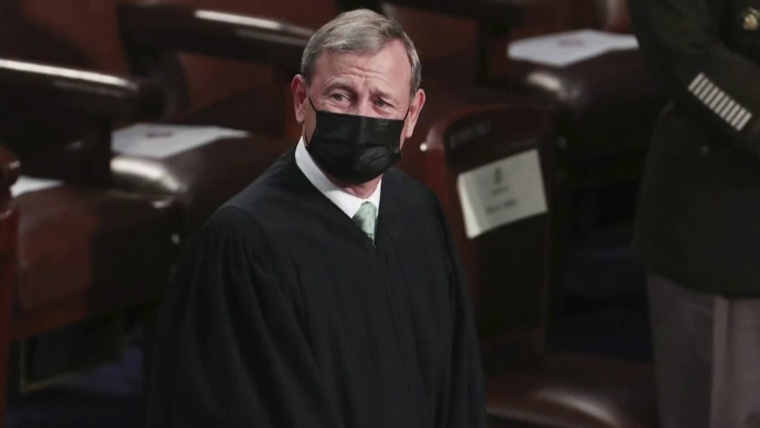The revelation Monday of a leaked draft of the majority Supreme Court opinion in Dobbs v. Jackson Women’s Health Organization stunned the world by signaling that a majority of the justices may now be prepared to overturn Roe v. Wade. But to those familiar with the institutional practices of the Supreme Court, the fact that the document became public at all is at least as stunning.
While leaking confidential information is a routine practice in other federal institutions, the Supreme Court has been remarkably effective in preserving its secrets. Part of that success can be attributed to the justices’ shared commitment to preserving the confidentiality that Justice Felix Frankfurter in 1955 described as “essential to the effective functioning of the Court.”
If the costs of preserving secrecy become too high, the court should consider pressing in the opposite direction: toward greater transparency.
In a press release announcing the commencement of an investigation into the source of the leaked document, which was published by Politico, Chief Justice Roberts condemned the disclosure as “a singular and egregious breach of” the court’s trust and “an affront to the court and the community of public servants who work here.”
The chief justice is right to condemn the leaker. Whoever it was not only violated the court’s deeply held institutional norms and the personal confidences of those with whom they work but also inflicted significant immediate and long-term damage on the court’s ability to be a deliberative institution.
In the near-term, the leak is likely to seriously impede justices and their respective staffs from working effectively with one another. Partisans on both the left and the right have pointed fingers at figures they associate with the opposing side, constructing elaborate speculations regarding possible motives. It’s not difficult to imagine a similar dynamic playing out within the court. Such tensions will very likely be exacerbated, at least in the near term, by the investigation called for by the chief justice.
The leak may also pose a longer-term threat to the internal process the court relies upon to craft its opinions. The exchange of interim drafts helps justices negotiate over the content of an eventual majority opinion and allows the authoring justice to respond to concerns of the other justices in the majority. This also provides an opportunity to persuade other justices to join the majority (or to dissuade wavering justices from defecting) and allows for engagement with arguments that will appear in concurring or dissenting opinions. This process cannot function effectively if the justices are unwilling to share their candid views with one another due to fears about potential leaks.
Nor do the undeniably high political and legal stakes surrounding the Dobbs decision warrant an exception to the ordinary duty to preserve the court’s confidences. Some have defended the disclosure as little different from leaks that routinely emanate from Congress and the executive branch. But such arguments ignore the important institutional differences between the political branches and the Supreme Court.
Leaks from the political branches might arguably ensure political accountability for elected officials or allow officials to communicate with the public through informal means. The justices of the Supreme Court are, by constitutional design, electorally accountable to no one and are empowered to formally opine on constitutional questions only when doing so is necessary to decide a particular case or controversy. Unauthorized leaks about pending cases (particularly politically controversial ones) serve no legitimate public purpose and are likely to encourage efforts to sway the justices’ votes, thereby threatening to further politicize the court’s decision-making and undermine the rule of law.
Historically, the court’s tight-knit structure has reinforced its ability to preserve its confidences. Confidential information is typically limited to the nine justices, their law clerks (four per justice per term) and a small number of support staff. The risk that a leaker’s identity might be uncovered is much higher than in a sprawling bureaucracy.
And most law clerks (typically recent law school graduates) understandably view the potential professional consequences of being identified as significant. Justice Antonin Scalia reportedly would tell his newly hired clerks that he would do “everything in my power to ruin your career” if they ever “betrayed the confidences” of his chambers. Given the significant influence that the justices carry in the legal community, most clerks wisely conclude that the potential costs of leaking far outweigh any potential benefits.
Even so, information does occasionally reach the public outside authorized channels. Usually, it’s about deliberations on cases that have already been decided, as in Bob Woodward and Scott Armstrong’s 1979 book “The Brethren.” That work contained unprecedented disclosures based on unnamed sources later revealed to have included justices and law clerks.
Leaks on pending cases are much rarer. One of the very few modern examples came with Roe v. Wade itself, which was the subject of two separate leaks regarding the court’s early discussions on the case and, later, the final voting lineup. But none of these prior disclosures comes close to this past week’s leak. The disclosure of a complete draft opinion seems truly unprecedented in the court’s modern history.
Unfortunately, catching the leaker may do little to dispel concerns regarding the court’s ability to preserve its confidences going forward. Even if the leaker is identified, punishment might be limited. For starters, there is substantial reason to doubt that a disclosure of confidential court documents on its own violates any existing federal law.
If the leak came from one of the justices, the professional repercussions are likely to be minimal thanks to the tenure and salary protections conferred by the Constitution (though there may be some chilly relations with colleagues). A clerk or staffer might expect more serious consequences (including being fired). But it is hard to predict how far-reaching those consequences might be. Even if the currently serving justices share Scalia’s willingness to “ruin” leakers’ careers, the justices are not all-powerful, even within the legal community. If being outed carries few consequences, this could well be a major turning point in the business of the court. Future law clerks may pay little heed to demands for confidentiality.
If the leak came from one of the justices, the professional repercussions are likely to be minimal thanks to the tenure and salary protections conferred by the Constitution.
How might the court respond? One approach would be to double down on secrecy. For example, justices might close ranks by limiting distribution of drafts and what information they share with staffers and clerks. But that would necessarily hamper the free exchange of viewpoints long central to the court’s practices.
If the costs of preserving secrecy become too high, the court should consider pressing in the opposite direction: toward greater transparency. For example, the court might formally institutionalize the disclosure of interim draft opinions. That would necessarily require some changes in the court’s internal drafting processes and might sacrifice some of the deliberative benefits associated with secrecy. But trying to keep near-final drafts away from the public while they circulate within the court for a prolonged period likely increases both the opportunities and incentives for leaking to occur, and decreases the court’s own control over the documents.
Such a practice would also allow for greater public visibility into the court’s inner workings and might even allow the court to incorporate into their final opinions information and perspectives revealed by the public’s comments on the interim drafts. That might be a silver lining for the courts and the American people following an otherwise lamentable event.
Source: | This article originally belongs to Nbcnews.com










